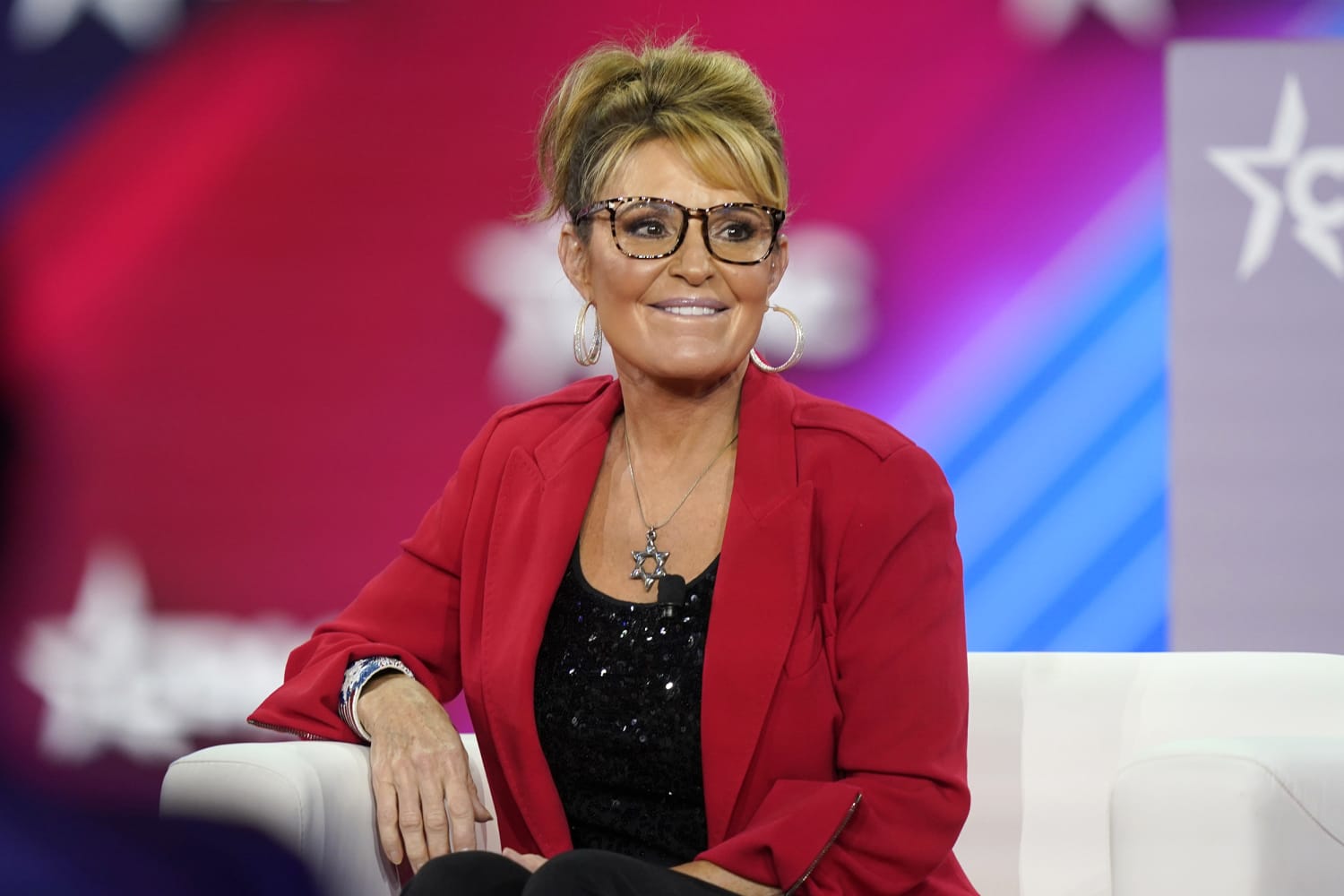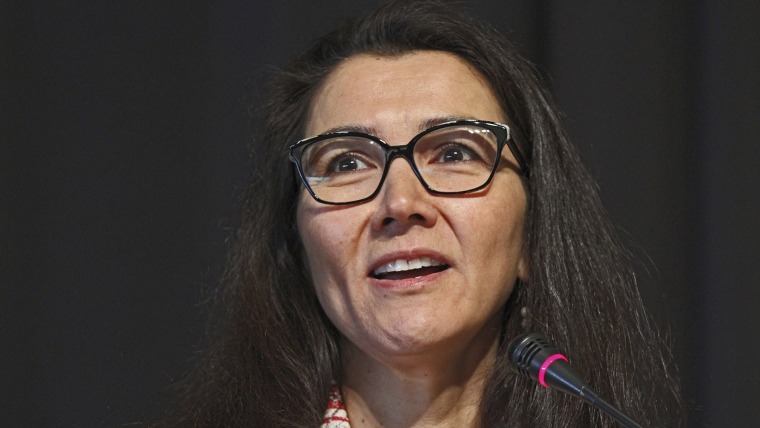Republicans have been up in arms about “jungle primaries,” or nonpartisan open primaries, and ranked choice voting, or RCV, systems that eschew traditional election formats. Such is the rage that in both Tennessee and Florida, laws have been enacted that essentially forbid any jurisdiction from experimenting with ranked choice voting in any format. And after Democrat Mary Peltola’s surprising victory in Alaska’s special U.S. House election last week to fill the vacant seat of longtime Republican Rep. Don Young, who died in March, rallying cries against RCV have reached a fever pitch. Sen. Tom Cotton of Arkansas, who has long opposed RCV, even called the format “a scam“ in a tweet following the results.
But the GOP — particularly the more traditional wing of the party that is alarmed at the divisive nature of the general election candidates who emerge out of Republican primary contests — shouldn’t be so quick to dismiss such formats. More open primaries and ranked choice voting formats might be the tools the GOP needs to regain control of the party from the MAGA-fueled fringe element that seems to be driving it off the cliff’s edge.
Most voters might have wanted to support a Republican, but in the end, they preferred a Democrat over the full-on MAGA- and Donald Trump-endorsed Palin.
Although there are many variations, in general, RCV is an election framework in which voters rank their preferences of candidates. If no candidate wins a simple majority of first-preference votes, the candidate with the fewest votes is eliminated, and the voting goes to another round. In that round, voters whose candidate was eliminated have their votes for their second-preference candidate counted if they put one down. The process continues until a candidate wins a majority.
In Alaska’s RCV special election, Republican Nick Begich III was eliminated in the first round with 27.8% of the votes. Republican Sarah Palin had 30.9%, and Peltola had 39.7%. When Palin and Peltola advanced to the second round, enough of Begich’s voters put Peltola down as their second choice over Palin that when it was all said and done, Peltola had 51.5% of the votes, and Palin had 48.5%.
Most voters might have wanted to support a Republican, but in the end, they preferred a Democrat over the full-on MAGA- and Donald Trump-endorsed Palin.
In mid-August, Senate Republican leader Mitch McConnell was doubtful that the GOP could gain control of the Senate this midterm. The reason? “Candidate quality.” (He was more hopeful about the party’s prospects in the House, but candidate quality is a problem there, too.)
Broad-based adoption of RCV and open primaries would force Republicans to put forward more moderate or traditional candidates who could attract support across the aisle and win tighter races.
It’s telling, for example, that the only two representatives of the so-called Impeachment 10 — House Republicans who voted to impeach former President Donald Trump in his second trial — to have sought re-election and survived this primary cycle have done so in so-called jungle primaries. In Washington’s 4th Congressional District, incumbent Republican Dan Newhouse fended off Loren Culp, a far-right Trump-endorsed candidate and election denier who called Newhouse a “traitor“ for his vote against the former president. With a traditional conservative like Newhouse advancing in the open primary, the Republicans have a far better chance of holding on to Washington’s 4th District. A similar story is playing out in California’s 22nd Congressional District, where David Valadao, another member of the “Impeachment 10,” survived his open primary. He is in a much stronger position to defend GOP control of the seat after having bested challenger Chris Mathys, an election-denying Trump conservative.
And even when MAGA candidates win in “jungle primary” elections, as in Washington’s 3rd Congressional District, it’s still a lesson that GOP leaders need to do more to back moderate and traditional Republicans. The emergence of far-right Trump-backed candidate Joe Kent has transformed this reliably Republican stronghold into a battleground district. Kent came in second in a “top two” open primary contest, ousting “Impeachment 10” member Jaime Herrera Beutler, a longtime middle-of-the-road Republican. Kent’s extreme MAGA views have become a liability for the party, according to some observers, instantly making the race far more competitive, as he must now scurry to build broader support to beat Democrat Marie Gluesenkamp Pérez, the top finisher in the primary.
The victory of Peltola, who will serve until January (the rest of Young’s term), was largely a function of the GOP’s failure to put forth more moderate or traditional candidates capable of gathering votes across party lines. For a Republican Party that is plagued by a collection of candidates this year that Vanity Fair’s Eric Lutz has simply called “weirdos,” ranked choice voting naturally weeds out fringe QAnon and hard-core “Handmaid’s Tale”-like conservatives in favor of more traditional, electable mainstream Republicans, because they have to be able to get second- or third-choice votes from Democratic and independent voters.
Allowing voters to rank their preferences in open elections will almost always favor pragmatic candidates over ideologues and cordial politicians over mudslingers who prefer to distinguish themselves from their opponents by using personal attacks.
Open primaries and RCV would take the wind out of the sails of extremist candidates who appeal only to a narrow, albeit highly vocal, far-right base that won’t stand much of a chance in highly competitive toss-up races.
McConnell and other GOP leaders from the more traditional wing of the party are concerned that their party is headed over a cliff because its MAGA base is consistently sending unelectable candidates to general elections in toss-up states. They might find the RCV method a convenient back door to salvage a party that teeters on the brink of becoming a permanent fringe minority.
Instead of being the party with a platform dedicated to conspiracy theories, election denials and alternative facts while relying on gerrymandering and voter suppression as the chief tools in its election strategy, the GOP could once again seek to compete head-on with Democrats with reasonable candidates with mainstream appeal.
Open primaries and RCV would take the wind out of the sails of extremist candidates who appeal only to a narrow, albeit highly vocal, far-right base that won’t stand much of a chance in highly competitive toss-up races. RCV, of course, threatens the new Trump-inspired power structure of the GOP, which has led some in the party to announce plans to propose that the Republican National Committee formally oppose it. But this is where McConnell and other mainstream Republicans could and should take a stand, by proposing exactly the opposite. Open primaries and RCV are in the party’s long-term best interest; they are tools that would enable party stalwarts to right the ship without having to take on Trump and the MAGA movement directly.
The next major test for RCV will come in November, when voters in Nevada weigh in on whether to adopt ranked choice voting as their new voting format. Even though Nevada has become a decidedly purple state in recent years, Nevada Republicans have doubled down on candidates espousing far-right conspiracy theories and election denialism, and in doing so, they have considerably narrowed the party’s appeal, a move that risks ceding the state to Democrats for good.
If the GOP would pay attention to what voters are saying with their preferences, it could use ranked choice voting and open primaries to its advantage and save itself from its darkest tendencies.
Source: | This article originally belongs to Nbcnews.com










